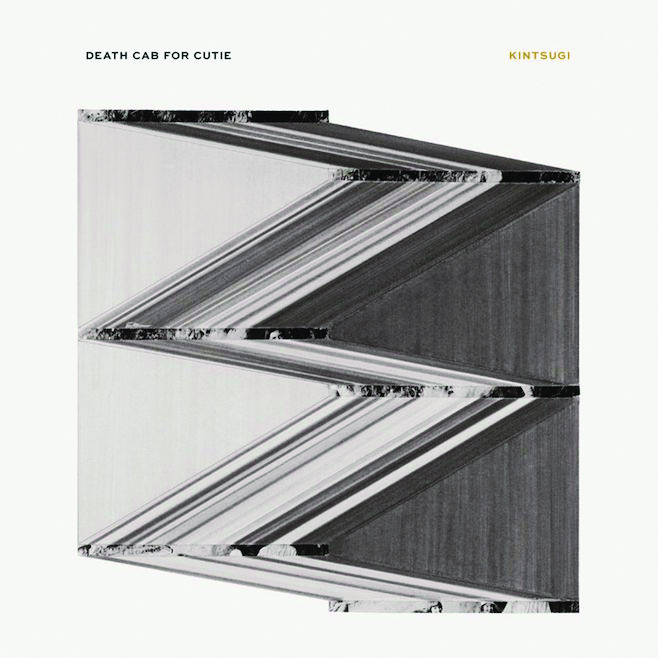By Joe Johnson (The Cascade) – Email
Print Edition: April 8, 2015

Death Cab for Cutie pioneered the sounds of early 21st-century indie rock. Their 2003 release, Transatlanticism, as well as 2005’s Plans, set the tone for the past decade and a half. The albums propelled Death Cab to godlike heights in the genre. With those back-to-back immaculate albums, full of spot-on narrative lyrics, melancholy, and depressive guitar-driven sounds, Death Cab earned the recognition they received.
It’s been 10 years since the release of Plans, and unfortunately, their other albums since then since haven’t seen Death Cab deliver at the same level. In fact, it would be easy to argue that there’s been a steady decline in depth. But Kintsugi is the latest from Death Cab, and its 11 tracks thankfully make inroads to correcting the band’s direction.
Still, the days of connecting on an emotional level with Death Cab are now gone. Ben Gibbard, the lead singer and songwriter, seems to have moved past the ability to find the same sources of inspiration.
However, to make it clear, what we’re given with Kintsugi isn’t all that much of a lesser album. It’s polished, with the richness of instruments that are still there as much as they ever were.
And as much as I lament for Death Cab at their peak, each subsequent album they release should be given respect and exploration based on its merit.
The album title, Kintsugi, is derived from the practice of appreciating and accepting new characteristics and histories that are imbued when fixing something that’s broken. In some ways, that provides a very fascinating understanding of this album. This is the first Death Cab album to be produced externally to the party; it was previously performed by lead guitarist and founding member Chris Walla, who fully departed the band following Kintsugi’s release.
Gibbard has always had a strong understanding of music, composition, and song-writing. It’s no surprise that one of the highpoints of this album would be intellectual lyricism. On “Binary Sea”, Gibbard sings about Greek mythology and the Titan Atlas to construe a structure in which we view our current technological world, “Oh come my love and swim with me / Out in this vast binary sea / Zeros and ones, patterns appear / They’ll prove to all that we were here … / Oh Atlas could not stay engaged / Was more distracted every day.” Or for a tremendous insight to youthful aging, “Ingenue” is a beautiful exposition.
Then there are tracks on the album that are moderately pop-heavy. In expected musical craftsmanship, the introduction of this sound is done hand-in-hand with the lyrics to deliver a complete piece, as “Little Wanderer” exemplifies.
It would also be a mistake to not mention “Hold No Guns,” which is a perfectly raw solo acoustic performance by Gibbard. “Everything’s a Ceiling” and “Good Help (Is So Hard to Find)” have incorporated synth elements, and “You’ve Haunted Me All Your Life” is a showcase of purposeful repetition intended to instil the beauty found in the human condition of wanting.
Kintsugi isn’t the Death Cab of old. But perhaps it’s the sign of the band reawakening. They didn’t sit back and continue to be derivative. This album is a journey in exploration of new elements, a turn of direction in focus, and is genuinely interesting.

